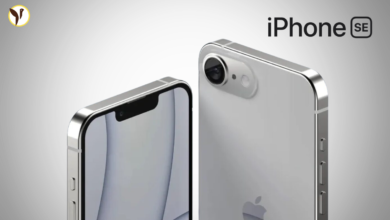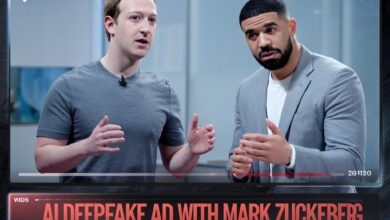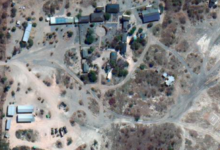
Sam Altman Shuts Down Elon Musk’s $97.4 Billion OpenAI Bid

The battle for AI dominance is intensifying as Sam Altman, CEO of OpenAI, firmly rejects Elon Musk’s staggering $97.4 billion acquisition offer.
Speaking at the AI Action Summit in Paris, Altman dismissed Musk’s bid as another episode in their long-standing AI rivalry, asserting that OpenAI is not for sale—especially not to Musk.
This bold statement not only reaffirms OpenAI’s independence but also underscores the deepening divide between Altman and Musk, two of the most influential figures in the AI industry.
Elon Musk’s Surprise Offer – A Power Play or a Strategic Move?
Elon Musk’s $97.4 billion bid for OpenAI’s assets came as a shock to many, potentially reshaping the narrative around the future of artificial intelligence.
Musk, who co-founded OpenAI in 2015 but later distanced himself from the company, has been increasingly vocal about his concerns regarding OpenAI’s direction.
His bid could be interpreted as:
- An Attempt to Regain Control – Musk has frequently criticized OpenAI for moving away from its original nonprofit mission.
- A Tactical Move in His Legal Battle – Musk is currently suing OpenAI, alleging that the company has strayed from its founding principles.
- A Competitive Strategy – Musk’s own AI company, xAI, is a direct competitor to OpenAI’s ChatGPT and GPT-4 models.
However, Sam Altman remains unfazed, quickly dismissing Musk’s offer with a strong public response.
Sam Altman’s Response – “OpenAI Is Not for Sale”
In a candid interview with Axios at the AI Action Summit, Sam Altman made his stance crystal clear:
“OpenAI is not for sale. OpenAI’s mission is not for sale.”
Altman also took a jab at Musk, suggesting that the billionaire’s persistent attempts to interfere with OpenAI are nothing new:
“There’s been like versions of Elon trying to, you know, somehow take control of OpenAI for a long time, so, it’s like, okay, here’s this week’s episode.”
He further emphasized that Musk’s interest in acquiring OpenAI is not aligned with its mission, stating:
“A competitor who is not able to beat us in the market and instead is just trying to buy us—without regard for the mission—is not the right path forward.”
Altman’s Savage Twitter Clapback
Shortly after rejecting the offer, Altman took to X (formerly Twitter) with a sharp-witted response:
“No thank you, but we will buy Twitter for $9.74 billion if you want.”
This bold and humorous comeback further highlights the ongoing tension between Altman and Musk, turning their rivalry into one of the most talked-about conflicts in the AI space.
OpenAI’s Internal Restructuring – A Move to Strengthen Independence?
While OpenAI remains independent, the company is currently undergoing a major restructuring process that separates its for-profit operations from its nonprofit board.
What’s Changing at OpenAI?
- OpenAI is redefining its corporate structure to ensure long-term sustainability and ethical AI development.
- The board has yet to determine a valuation for OpenAI’s operations, adding further complexity to Musk’s bid.
- Altman insists that there is “a lot of misreporting” regarding OpenAI’s restructuring, urging the public not to believe everything in the media.
The restructuring suggests that OpenAI is focused on maintaining autonomy and stability, making it even more unlikely that the company would entertain an acquisition—especially from a direct competitor like Musk.
Elon Musk vs. OpenAI – The Ongoing Feud
The bad blood between Musk and OpenAI has been brewing for years.
Key Moments in the Altman vs. Musk Rivalry:
- 2015 – Musk co-founds OpenAI as a nonprofit organization aimed at ethical AI development.
- 2018 – Musk resigns from OpenAI’s board, citing conflicts of interest with Tesla’s AI projects.
- 2020 – OpenAI shifts to a “capped-profit” model, leading Musk to criticize its direction.
- 2023 – Musk launches xAI, a competing AI company to rival OpenAI and Google DeepMind.
- 2024 – Musk sues OpenAI, claiming it has deviated from its nonprofit mission.
- 2025 – Musk offers $97.4 billion to buy OpenAI, which Altman firmly rejects.
With Musk ramping up his AI ambitions through xAI and OpenAI continuing to dominate the generative AI space, their rivalry shows no signs of cooling down.
What’s Next for OpenAI and the AI Industry?
The AI landscape is evolving rapidly, and the power struggle between major players like OpenAI, xAI, and Google DeepMind is shaping the industry’s future.
Potential Outcomes of the OpenAI-Musk Conflict:
- Increased AI Regulation – Governments may step in to prevent monopolization in the AI sector.
- Strengthened OpenAI Leadership – Altman’s firm rejection may solidify OpenAI’s independence and credibility.
- Musk Doubling Down on xAI – After OpenAI’s rejection, Musk is likely to accelerate xAI’s development to compete with ChatGPT and GPT-5.
- More AI Mergers and Acquisitions – Other tech giants like Microsoft, Google, or Meta may make strategic moves to gain AI dominance.
With ChatGPT leading the generative AI space, OpenAI appears stronger than ever, while Musk’s xAI is still playing catch-up.
One thing is certain: the battle for AI supremacy is far from over.
FAQs About OpenAI, Elon Musk, and AI Leadership
1. Why Did Elon Musk Offer to Buy OpenAI?
Musk believes OpenAI has strayed from its original nonprofit mission and wants to regain control.
2. Why Did Sam Altman Reject Musk’s Offer?
Altman insists OpenAI’s mission is not for sale, and he does not believe Musk’s interests align with OpenAI’s vision.
3. What Is OpenAI’s Current Valuation?
OpenAI has not yet determined an official valuation, though it is estimated to be worth over $100 billion.
4. Is OpenAI Still a Nonprofit?
OpenAI operates under a capped-profit model, meaning it balances profit-making with ethical AI development.
5. What Is xAI, and How Does It Compete With OpenAI?
xAI is Musk’s AI company that aims to develop safe and beneficial AI, competing with OpenAI’s ChatGPT.
6. Will OpenAI Ever Be Sold?
For now, OpenAI remains independent, with no signs of selling to Musk or any other entity.







